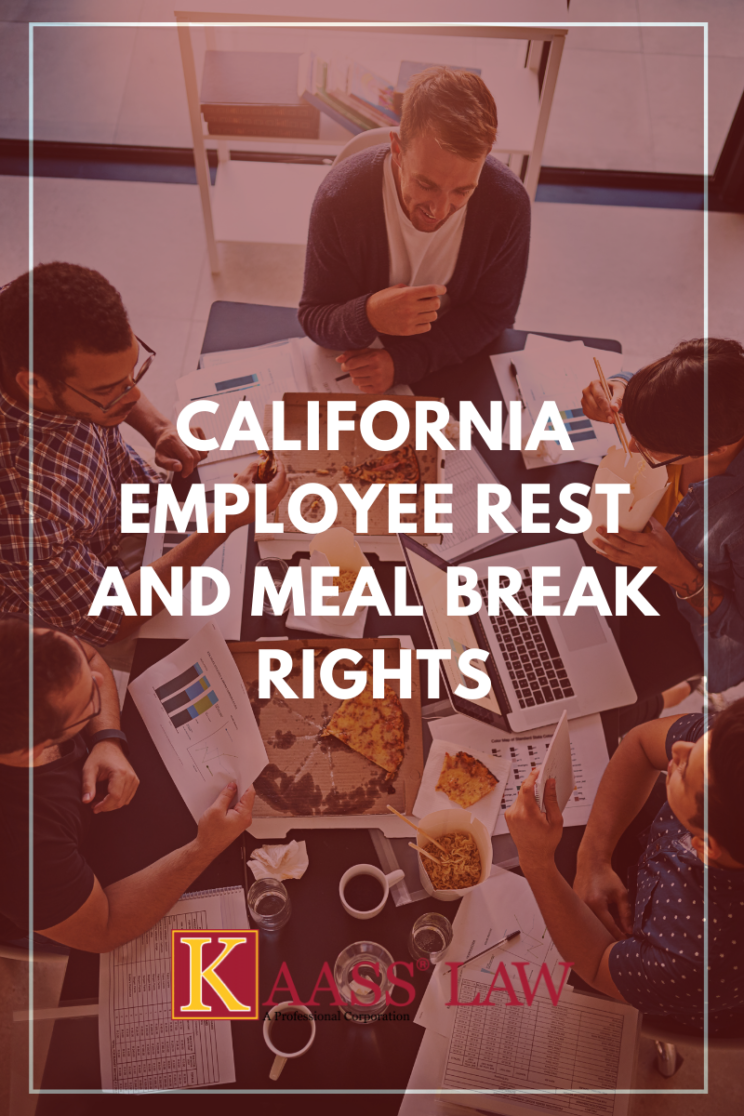Meal Break for Non-Exempt Employees
Non-exempt employees in California must have a thirty (30) minute lunch or meal break if they work more than five (5) hours in a day, according to wage and hour law. The meal break must be taken within the first five hours of the workday. Employees who work more than ten (10) hours a day have the right to a second 30-minute meal break.
Rest Breaks for Non-Exempt Employees
Non-exempt employees who work three and a half (3 1/2) hours or more in a day are required by California labor law to take rest breaks. Employees are entitled to ten (10) minutes of relaxation for every four (4) hours, or a significant fraction worked in a day. These breaks should be taken during each 4-hour period as much as practicable.
Employee Rest Breaks
Rest break must be ten minutes long and uninterrupted. During the break, an employee must be released of all obligations, and the employer must provide “appropriate resting facilities” in a location apart from the restrooms. Rest breaks, unlike meal breaks, are compensated. Employers are not permitted to ask employees to remain on-site or on-call during rest periods.
Am I Required to Take a Rest Break?
Rest periods may be skipped by employees. Employees cannot be pressured or encouraged to skip rest periods by their employers.
What is a Meal Break?
A meal break is an unpaid and uninterrupted period that an employee has to do what they wish during their 30 minutes provided break. Further, during the meal break the employer must:
- relieve the employee of all tasks;
- seize control of the employee’s activities during the meal break period; and
- provide a reasonable opportunity for the employee to take a 30-minute uninterrupted food break
Employers are prohibited from the following:
- prohibit or prevent employees from eating;
- offer incentives for employees to skip meal breaks; or
- create a culture that encourages employees to skip breaks.
Employers must provide meal/lunch breaks but are not required to ensure that their employees take them.
Can you Give up Your Right to a Meal Break?
An employee who works a shift of six hours or less may give up their right to a meal break. Meal break waivers do not need to be in writing, but both parties must agree to them.
If the employee’s shift is more than ten hours but not more than twelve, they can renounce their right to a second meal break as long as they take the first one—they cannot waive both breaks on the same day. Employees who work through a meal break do not have the right to depart early.
Can I Sue My Employer for Not Giving me a Meal and Rest Break?
Yes, and yes, you should. If your employer refuses to give you a meal or rest breaks, you are entitled to a penalty of one hour’s earnings for each day you were denied any rest breaks, as well as a penalty of one hour’s wages for each day you were denied any meal breaks (for a maximum penalty of up to 2 hours’ wages per day). Due to a recent California Supreme Court decision, the filing date for meal and rest breaks violations is normally three years. Still, in some situations, a one-year filing deadline may apply.
California Employment Attorney
If you or someone you know believe that they have a claim against their employer for violating California’s meal and rest break laws we invite you to contact our employment attorney today at (310) 943-1171 for a free consultation.

